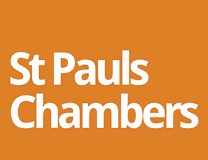*/

Harry Hodgkin, CEO of The Barrister Group, gives an insight into Chambers' core principles and the individual barrister's experience
I would actually say that one of the most important aspects of the Bar during my career was the sense of professional community: there has always been a mutual responsibility among members to uphold the reputation of the Bar. One of the great benefits for the practitioner is the substantial degree of goodwill associated with simply being a member of the Bar. While these values have traditionally been advanced through the presence of physical sets of chambers, I believe that they can equally well exist within a modern, remote or hybrid chambers model. The critical need is to ensure that professional, regulatory, and ethical standards are maintained, irrespective of the chambers set up.
Our professional standards team instils these standards throughout the career of our members, from pupillage to judicial careers and silk applications, alongside dealing with ethical issues and complaints processes. By actively promoting social and professional interaction among our members we believe that we can maintain the existing professional community values of the Bar to no less a degree than a physical chambers.
Flexibility, diversity and equality, and a focus on the welfare of our barristers, access to justice and the needs of the customer. We want to ensure that all our barristers are completely free to choose how much work they carry out, when and where they work, and in which subject areas. We ask our barristers to select their own preferences and we give them full control of their workload. We also want to make sure that they have equality of opportunity, and that work is fairly allocated. We have found that this approach is often welcomed by prospective law firms who are then encouraged to reconsider the traditional referral arrangements and embrace broader allocation of work.
Each barrister is treated as a microbusiness, supported by a professional marketing team and Chambers 365, our proprietary case management system. The barrister can have accommodation if they require it, but we avoid mandating rooms because we do not see that as relevant to the maintenance of professional standards or values. At all times, we keep a keen eye on how we are benefiting the customer; switching the proposition from being purely barrister-focused; meeting the needs of the customer with a consistent, efficient, and cost-effective service.
In my view the Bar has two particular ongoing issues that need to be addressed as a priority.
The first is pupillage. Right at the onset of a barrister's prospective career, access to the profession is obstructed by a scarcity of available pupillages. Because the number of places is so scarce, we need to ensure a fairer allocation based on merit alone. To further this aim, our professional standards team has conducted research on accessibility of pupillages, and we will be actively devising strategies to tackle these issues, including the introduction of apprenticeships.
Second, is the public image of the Bar as inaccessible to all but the few. For individuals without the assistance of a solicitor, determining which barrister to engage is a considerable challenge in the absence of an objective measure to guide them. While we at TBG strive for a consistency of service from our barristers, this commitment is not universal to the Bar. It is inevitably almost impossible for a member of the public to make a fully informed decision. From the perspective of improved access to justice there is therefore much to be said for the introduction of a kitemark. Such a measure of quality assurance will provide consumers with some reassurance that their chosen barrister satisfies independent standards of value and service.
Our investment is essentially being allocated across three broad areas: our people, pupillages, and access to justice. First, a more commercially focused approach is taking root as we expand our business. With dedicated teams in marketing, business development, and technology, we leverage these resources to cultivate the practices of our barristers. This strategic move aims to attract higher-quality work, propelling their careers forward.
Secondly, we have chosen to make investment in pupillages a cornerstone of our long-term vision. By allocating resources to enhance our pupillage offering with this commercial focus, we want to make a positive impact right from the outset of a barrister's career. This foundational support lays the groundwork for a commercially focused, successful future, whether it unfolds with us at TBG or in another chambers.
Lastly, our unwavering focus on improving access to justice for the public remains a top priority. We are committed to providing comprehensive information, empowering individuals to make informed choices when selecting a barrister. Transparency about fees, timescales, and barristers' experience and skills is our way of demystifying the process and fostering a more open relationship between the profession and the public.
We have designed the specialist practice groups with the end client in mind. We want to ensure they receive the precise service they require, whether that be a specialist or a multi-disciplinary practitioner. To this end we have recently launched our specialist groups after a stringent selection process to ensure that our barristers are in the groups most closely matched to their skill set and experience. To maintain the integrity of specialisation, our barristers must adhere to strict guidelines – requiring 70% or more of their practice to fall within their designated area.
At the same time, we have unveiled TBG House, which we recognise as the cornerstone of TBG: the group comprised of our barristers with expertise across more than one area of law.
We have recently recruited a dedicated Barrister Membership Officer to assist our members in a smooth transition into chambers and to support them in their continuing professional development.
I also think that barristers joining TBG will be surprised at the quantity of marketing and support resources that we will offer them, at a level of professionalism which they may be entirely unfamiliar with. Perhaps for the first time in their career they will have access to the tools and support necessary to realise fully the commercial potential of their individual practice.
Our vision for TBG is to be not simply the largest barrister organisation, but importantly the most consistent in its delivery of service to solicitors and members of the public. We want to align our brand with values traditionally associated with the Bar but reimagined in a contemporary context. The service will ensure that the public regards us as a trusted, reliable, superior quality brand representative of the best contemporary values of the Bar.
Interested in joining The Barrister Group? To find out more about this inclusive and diverse chambers, which is serious about growing your practice, please click here.

I would actually say that one of the most important aspects of the Bar during my career was the sense of professional community: there has always been a mutual responsibility among members to uphold the reputation of the Bar. One of the great benefits for the practitioner is the substantial degree of goodwill associated with simply being a member of the Bar. While these values have traditionally been advanced through the presence of physical sets of chambers, I believe that they can equally well exist within a modern, remote or hybrid chambers model. The critical need is to ensure that professional, regulatory, and ethical standards are maintained, irrespective of the chambers set up.
Our professional standards team instils these standards throughout the career of our members, from pupillage to judicial careers and silk applications, alongside dealing with ethical issues and complaints processes. By actively promoting social and professional interaction among our members we believe that we can maintain the existing professional community values of the Bar to no less a degree than a physical chambers.
Flexibility, diversity and equality, and a focus on the welfare of our barristers, access to justice and the needs of the customer. We want to ensure that all our barristers are completely free to choose how much work they carry out, when and where they work, and in which subject areas. We ask our barristers to select their own preferences and we give them full control of their workload. We also want to make sure that they have equality of opportunity, and that work is fairly allocated. We have found that this approach is often welcomed by prospective law firms who are then encouraged to reconsider the traditional referral arrangements and embrace broader allocation of work.
Each barrister is treated as a microbusiness, supported by a professional marketing team and Chambers 365, our proprietary case management system. The barrister can have accommodation if they require it, but we avoid mandating rooms because we do not see that as relevant to the maintenance of professional standards or values. At all times, we keep a keen eye on how we are benefiting the customer; switching the proposition from being purely barrister-focused; meeting the needs of the customer with a consistent, efficient, and cost-effective service.
In my view the Bar has two particular ongoing issues that need to be addressed as a priority.
The first is pupillage. Right at the onset of a barrister's prospective career, access to the profession is obstructed by a scarcity of available pupillages. Because the number of places is so scarce, we need to ensure a fairer allocation based on merit alone. To further this aim, our professional standards team has conducted research on accessibility of pupillages, and we will be actively devising strategies to tackle these issues, including the introduction of apprenticeships.
Second, is the public image of the Bar as inaccessible to all but the few. For individuals without the assistance of a solicitor, determining which barrister to engage is a considerable challenge in the absence of an objective measure to guide them. While we at TBG strive for a consistency of service from our barristers, this commitment is not universal to the Bar. It is inevitably almost impossible for a member of the public to make a fully informed decision. From the perspective of improved access to justice there is therefore much to be said for the introduction of a kitemark. Such a measure of quality assurance will provide consumers with some reassurance that their chosen barrister satisfies independent standards of value and service.
Our investment is essentially being allocated across three broad areas: our people, pupillages, and access to justice. First, a more commercially focused approach is taking root as we expand our business. With dedicated teams in marketing, business development, and technology, we leverage these resources to cultivate the practices of our barristers. This strategic move aims to attract higher-quality work, propelling their careers forward.
Secondly, we have chosen to make investment in pupillages a cornerstone of our long-term vision. By allocating resources to enhance our pupillage offering with this commercial focus, we want to make a positive impact right from the outset of a barrister's career. This foundational support lays the groundwork for a commercially focused, successful future, whether it unfolds with us at TBG or in another chambers.
Lastly, our unwavering focus on improving access to justice for the public remains a top priority. We are committed to providing comprehensive information, empowering individuals to make informed choices when selecting a barrister. Transparency about fees, timescales, and barristers' experience and skills is our way of demystifying the process and fostering a more open relationship between the profession and the public.
We have designed the specialist practice groups with the end client in mind. We want to ensure they receive the precise service they require, whether that be a specialist or a multi-disciplinary practitioner. To this end we have recently launched our specialist groups after a stringent selection process to ensure that our barristers are in the groups most closely matched to their skill set and experience. To maintain the integrity of specialisation, our barristers must adhere to strict guidelines – requiring 70% or more of their practice to fall within their designated area.
At the same time, we have unveiled TBG House, which we recognise as the cornerstone of TBG: the group comprised of our barristers with expertise across more than one area of law.
We have recently recruited a dedicated Barrister Membership Officer to assist our members in a smooth transition into chambers and to support them in their continuing professional development.
I also think that barristers joining TBG will be surprised at the quantity of marketing and support resources that we will offer them, at a level of professionalism which they may be entirely unfamiliar with. Perhaps for the first time in their career they will have access to the tools and support necessary to realise fully the commercial potential of their individual practice.
Our vision for TBG is to be not simply the largest barrister organisation, but importantly the most consistent in its delivery of service to solicitors and members of the public. We want to align our brand with values traditionally associated with the Bar but reimagined in a contemporary context. The service will ensure that the public regards us as a trusted, reliable, superior quality brand representative of the best contemporary values of the Bar.
Interested in joining The Barrister Group? To find out more about this inclusive and diverse chambers, which is serious about growing your practice, please click here.
Harry Hodgkin, CEO of The Barrister Group, gives an insight into Chambers' core principles and the individual barrister's experience

Ever wondered what a pupillage is like at the CPS? This Q and A provides an insight into the training, experience and next steps

What meaningful steps can you take in 2026 to advance your legal career? asks Thomas Cowan of St Pauls Chambers

Q and A with criminal barrister Nick Murphy, who moved to New Park Court Chambers on the North Eastern Circuit in search of a better work-life balance

What’s it really like to work in the National Crime Agency’s in-house legal team? TM, a lawyer in the NCA’s Financial Disruptions Litigation team, shares a day in her life

By the Chartered Governance Institute UK Ireland

Q and A with Major Susie Brooke, Legal Officer in Army Legal Services